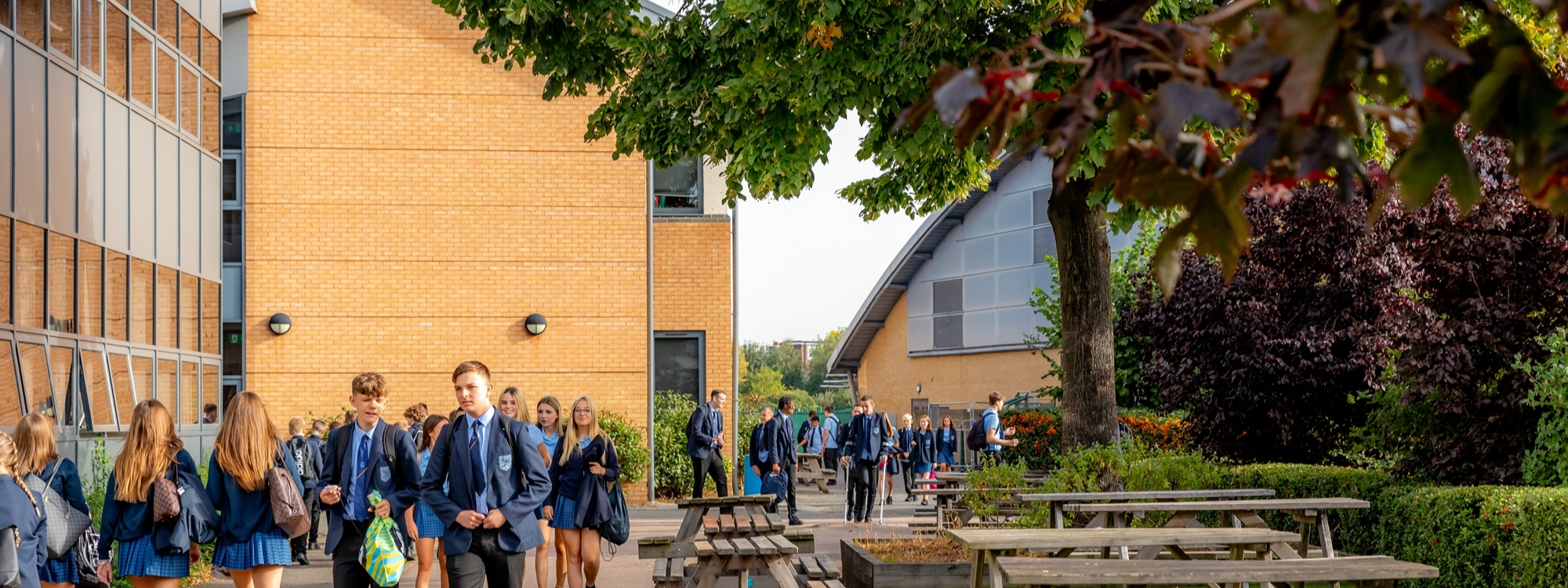- Home
- Curriculum
- Subject Information
- Music
SUBJECT LEAD of music
mr j reece
Vision
Discover and develop a deeper understanding of the music and its history, through performing, composing and listening.
Disciplinary Concepts
- Perform
- Compose
- Appraise
Big Questions
- How can I improve as a musician?
- How can I overcome performance anxiety and channel my energy effectively?
- How can I use a range of musical techniques to express myself?
- How can I organise my composition ideas into a coherent piece that suits a specific genre?
- How can I decode the hidden messages encrypted in music?
- How can be an effective listener of my own music and the music of others?
Curriculum Content
Year 7
- The Musical Elements & Singing
- The Stave, Keyboard & Melody
- Chords & Texture
- Rhythm & Composition Project
- Pop in Performance Practice
Year 8
- Theme & Variations
- Reggae, Ukulele & Reading/Writing Tab
- Music for Film
- Musicals
- Band Project- Performance Practice
Year 9
Transition year bridging Key Stage 3 and 4, focusing on the foundations of music through solo and ensemble performance. Learning first in small groups and then as individuals to create compositions based around a set brief with a focus on Popular Music. Both composition and performance are areas in the GCSE Curriculum. In Year 9 Music, pupils have the opportunity to complete the Trinity Level 1 Award in the Arts, known as Bronze Arts Award and much of the focus of the course focuses on preparing them to achieve this award.
Year 10
GCSE Edexcel Music. Focus on two of four areas of study for the GCSE listening & appraising examination- Vocal Music and Fusions. There is also a focus on wider listening of a variety of genres. Free composition to be completed by the end of Year 10. Performance skills to be built upon and pieces chosen in preparation for recordings in the beginning of the next year.
Year 11
GCSE Edexcel Music. Solo and ensemble performance recordings are completed during this year. Focus on the additional two of four components for the GCSE listening & appraising examination- Instrumental Music and Music for Stage & Film. The set brief composition is released in September and takes the focus of the first term along with revising previous topics studied in preparation for the Appraising Examination at the end of the academic year.
Year 12
Unit 1- Practical Music Theory & Harmony- This unit is embedded throughout the year in short theory activities and linking the learned components to practical music making in the optional unit choice (Unit 5, 6 or 7) which is completed in Year 12. They go on to complete the Theory Unit in Year 13 having learned the foundations in Year 12. The Externally assessed Unit 3 is also completed this year (starting in January with a performance in the summer term) which requires pupils to re-arranging three pieces of music as a group and focuses on performance and compositional skills.
Year 13
Externally assessed units (Unit 2) is completed this year which focuses on the Music Industry and various job opportunities which are put into practice through a business focused assignment of planning a music event. The Unit 1- Practical Music Theory & Harmony is also completed this year, building on the foundations learned in Year 12 and applying them to short composition and performance tasks.

 ';
';

